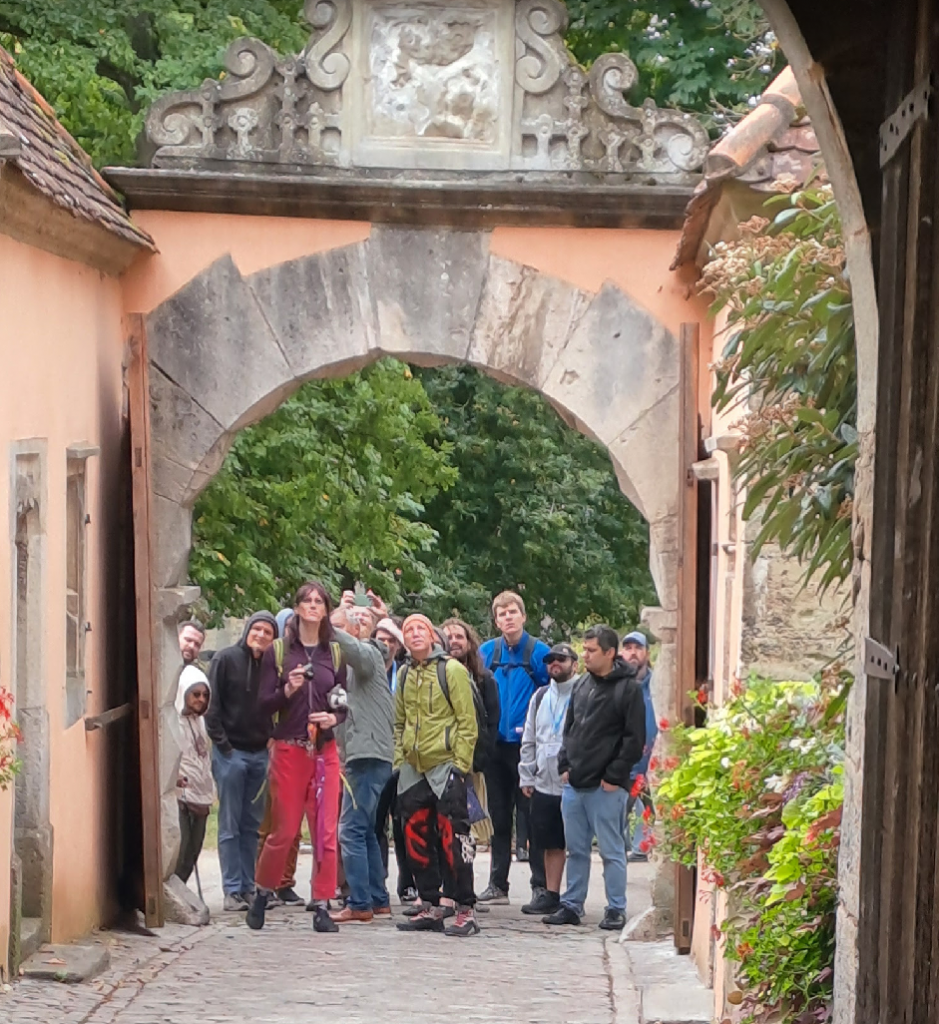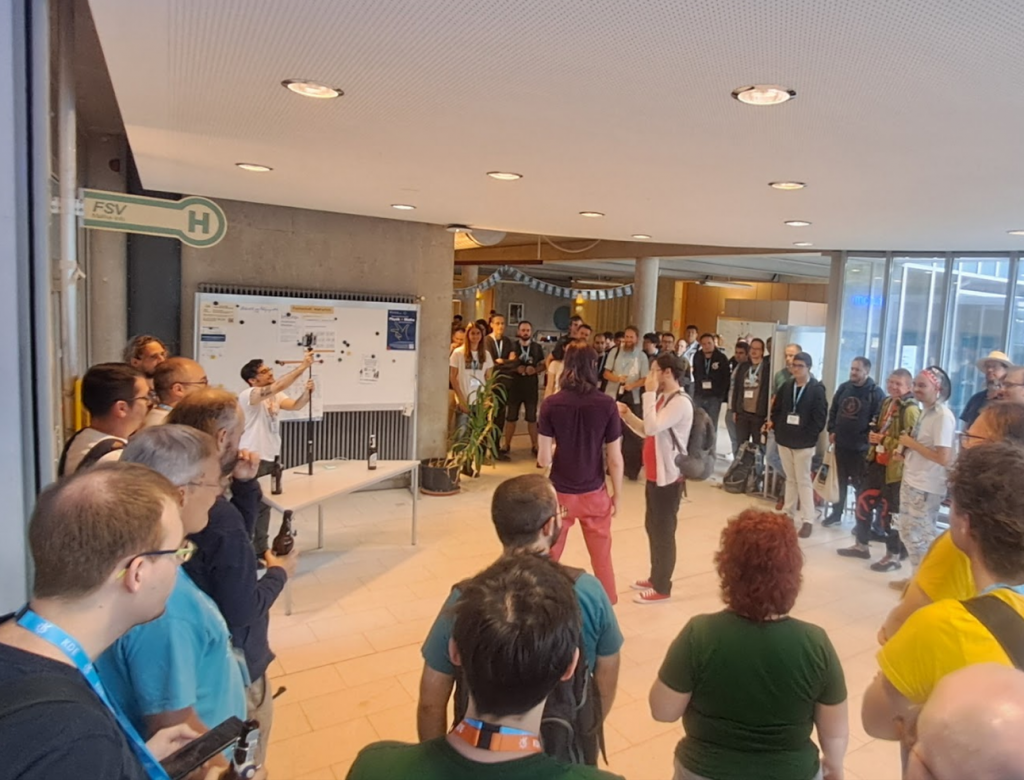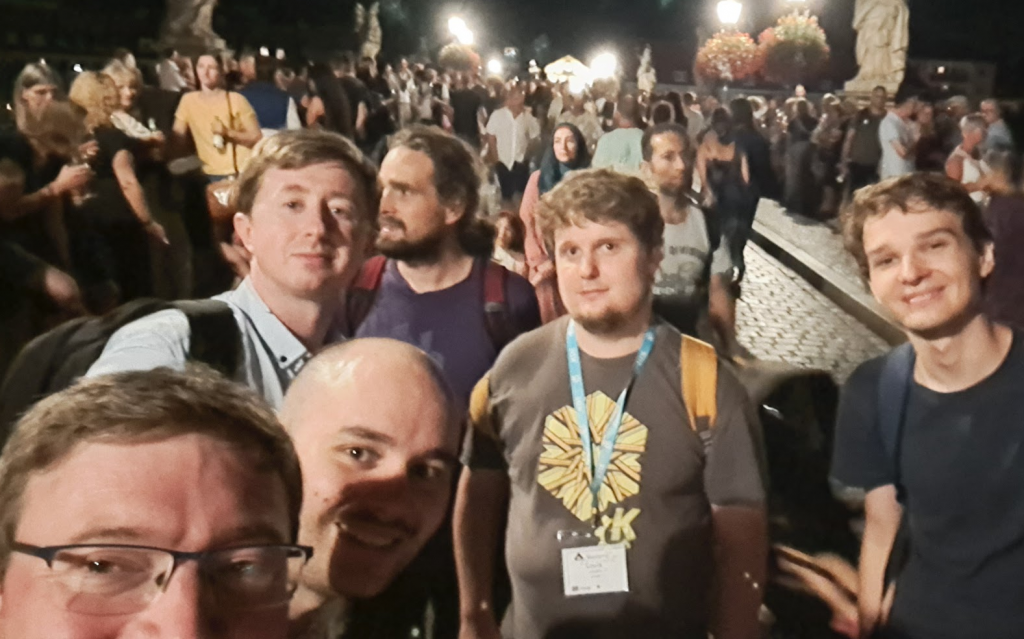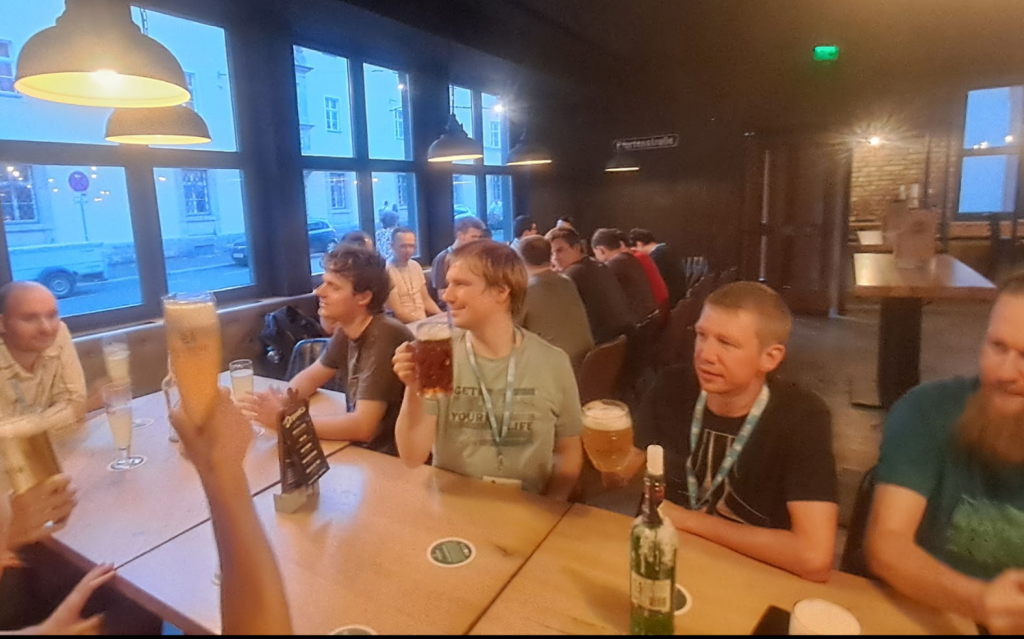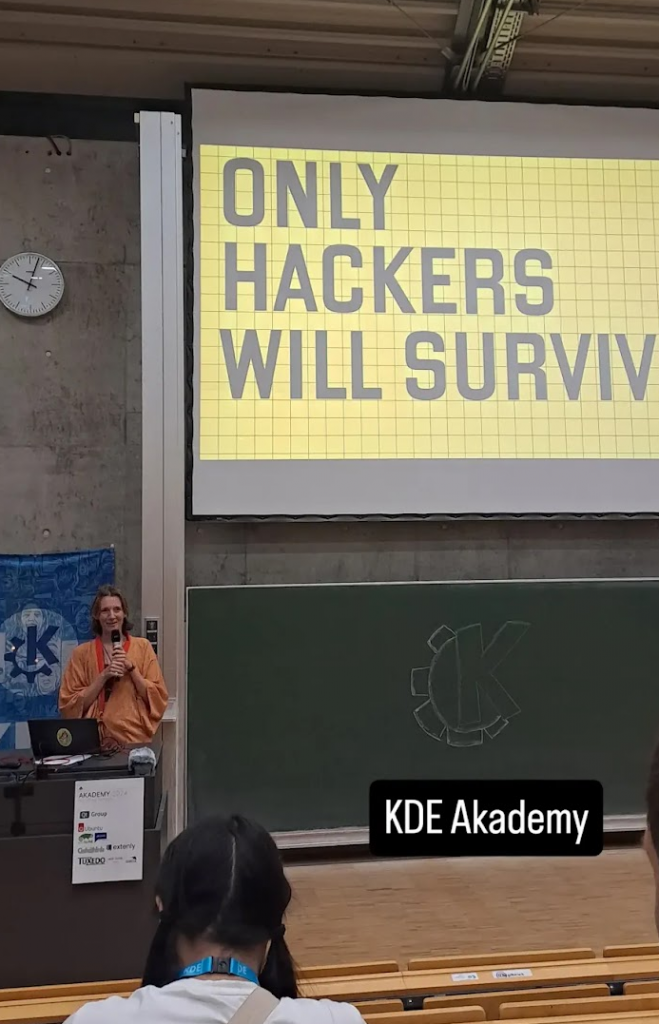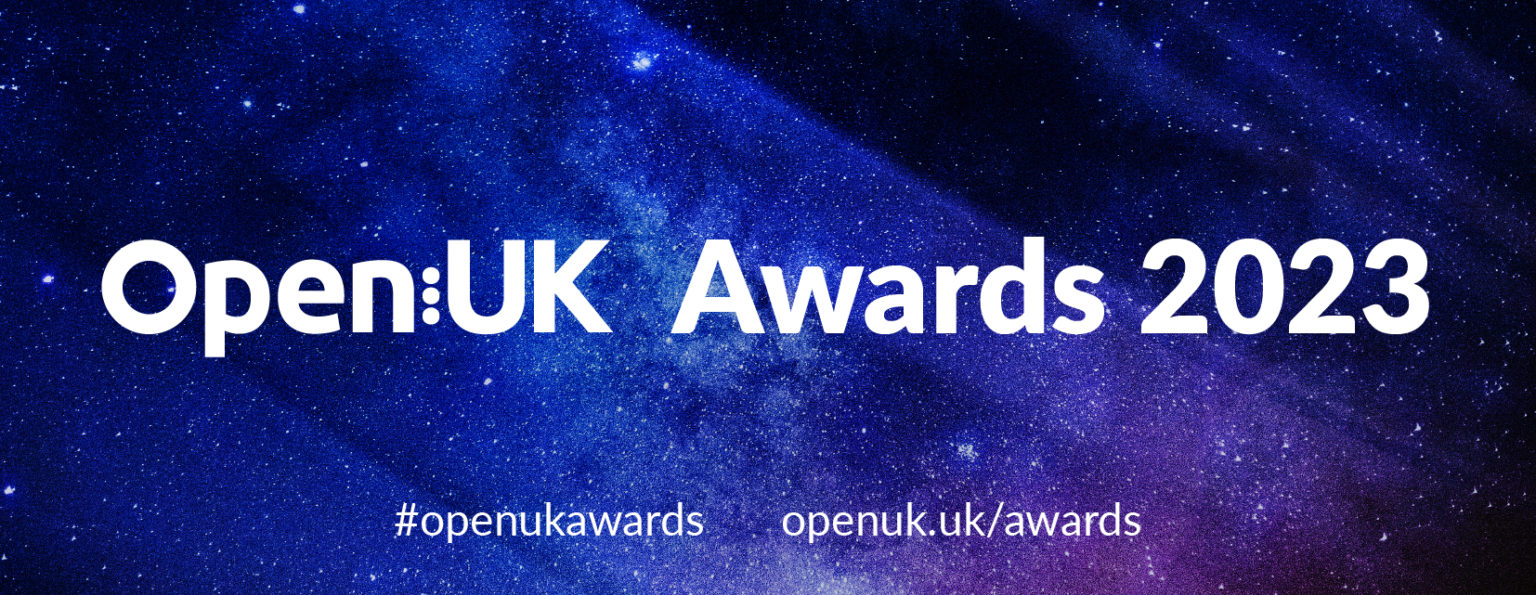It was the turn of the millenium when I got my first computer fresh at university. Windows seemed uninteresting, it was impossible to work out how it worked or write programs for it. SuSE Linux 6.2 was much more interesting to try and opened a world of understanding how computers worked and wanting to code on them. These were the days of the .com boom and I went to big expos in London where they showered you with freebies and IBM competed with SuSE and Red Hat for the biggest stall. IBM said that Linux had made it on the server and now was going to take over the desktop so I realised that working with KDE would be a good idea. And as a novice coder it was very perfect for learning Qt and how open development worked and I loved the free software ideals. Going to the pre-Akademy conference (it was called Kastle then) in Nove Hrady was a great intro to the community in person and in some ways I learnt more about software development in a week there then my years at uni.
So clearly this was a good way to make a career. I dossed around for a year until the Quaker geek collective heard tale of an African Spaceman who was funding a new Linux distro called SSDS (Shuttleworth’s Super Secret Debian Startup) so I got into Debian packaging and made a point that KDE should be involved. Before long they came knocking and I went to the first Ubuntu conference in Australia. I spent about ten amazing years brining KDE to Ubuntu or bringing Ubuntu to KDE for what was already called Kubuntu (not my name choice), a successful community project I’m really proud of. At one point Nokia wanted to use it alongside Plasma Active to sell on a tablet thing along with phones, this could well have taken over the world but y’know, iPhone happened and Kubuntu never found a commercial use after that although it still gets used in big places like Google or the City of Munich or Weta digital (watch those Hobbit DVD extras). I loved being invited out to Nigeria or India to give talks and spread the world of open software. Looking back there’s probably a million business cases that would have been possible but I’m not the best at being a future visionary. Eventually Canonical decided to stop funding it which is fair enough.
But then Blue Systems came along, another nice guy with deep pockets wanting to help and we carried on. When Canonical decided to kill off lots of community projects we came up with the idea of moving directly into KDE to make KDE neon. It has always been crazy how open source communities like KDE are reliant on separate companies to take their software out to the world so we wanted to change that, and I like to think we succeeded. Using CI systems we could create a much more manageable setup. Still the system was never as resiliant as it should have been and several times KDE neon ended up shipping a duff update which will have been very painful for users. We had three people working full time on it at the start but before long it was just me and a volunteer and the quality suffered as a result.
Last winter I drove to the Blue Systems schoße for a routine conference and was organising people to give talks when the guy who pays us started off by saying he was dying and the company would be shutting down. Which was very sad but it makes sense to end it on a high. After years of having no business modal and not knowing what the aims of the company were, which caused several people to genuinely go mad, we finally had a business model of sorts with Valve paying us to make Plasma up to the standards needed to ship it as Desktop Scope on the Valve Steam Deck games console. Nate had been given advanced notice of the company shutting down and had already started another company, Tech Paladin, to take on the business. Shouldn’t this be run as a cooperative we wondered? No that was too complex he said. The next day I ended up at a funeral for some German accountants and when I came back there had been some more discussion and we watched a video about Igalia who make the other operating system for Valve. They are a cooperative socialist paradise and Nate said he’d look into doing that instead of the setup where he had full control and all the profit. It was clear there was to be no other discussion on the matter of our future.
A few weeks later we had an online meeting where I proposed a useful agenda but was ignored, instead Nate gave his updated plan for a business which was to give Dave a slice of the profit and otherwise he’d keep all the profit and all the control. So I gave my proposal I’d been working on for a company with equal ownership, equal profit, a management structure and workers rights. A couple weeks later we had anther video call but Nate called me first and told me I’d be excluded from it. No explanation was given beyond I had “made some comments and would not be happy”. If someone is telling you what your emotions that is when controlling behaviour starts to become abusive. And thus ended my 25 years with KDE.
And what of my colleagues? Surely they wouldn’t want a setup where they have no control over their professional life and all their profit goes to one person? Well dunno, they’ve stopped speaking to me. Nothing. Silence. Nil. Not so much as a “cheereo”, nor “sorry we chose the option were you got excluded” and certainly no explanation. From people who I have worked with for some twenty years in some cases that hurts. I don’t know why they stopped talking to me, I can only speculate and I don’t want to do that.
We never had workers rights at Blue Systems, we were all on self employment contracts. This will continue at Tech Paladin. It is illegal but unenforceable when done on an international setup. But employment rights are not a luxury you can chose to do without if you enjoy your job and want some more flexibility in your work day. They are fundamental and life altering rights that change people’s lives as I discovered when my adopted children were taken away from me. Nobody should be doing business with or taking money from Tech Paladin else be party to illegal workers rights abuses.
Then I started to get sad, being cut off from my life for the last 25 years was too much for me. All things come to an end and I’ve seen plenty people had to leave KDE because the money ran out or maybe they had a disagreement with someone in the project, but never a profiteering control struggle like this. I struggled to get out of bed on some days. I’ve given my life to KDE, I’ve seen it gone from a sure fire project to take over the world to being one open desktop project in a world of many to seeing the revival in recent years where we can honestly say we make some of the best software out there. I like to think I’ve been part of keeping it alive, progressing, relevant and at the forefront of commercial, government and community usage. It’s been an amazing ride full of opportunities and adventures the likes of which I’m sure my peers from my university course have never had.
But in the end I lost my friends, my colleagues, my job, my career and my family. What’s a spod who just tried to do the right thing for society to do? Dunno. For now, if you want me, you can find me surfing the endless wave whenever the sun sets over my digital nomad coliving paddleshack at the end of the world.


